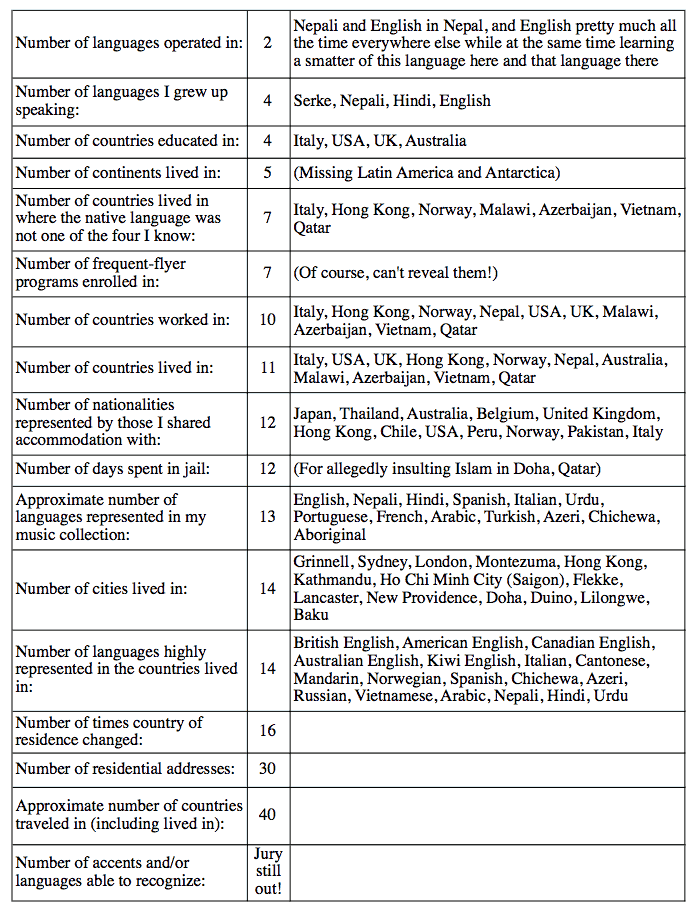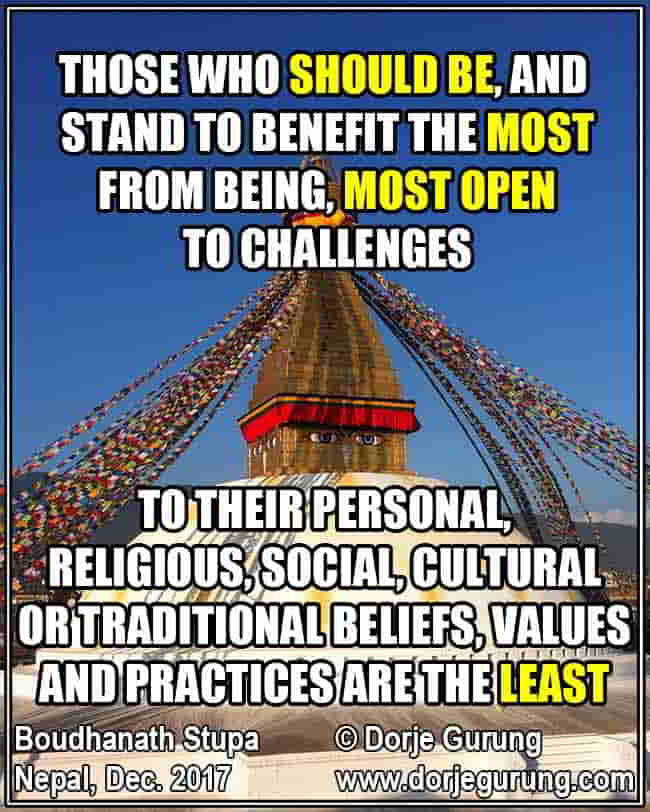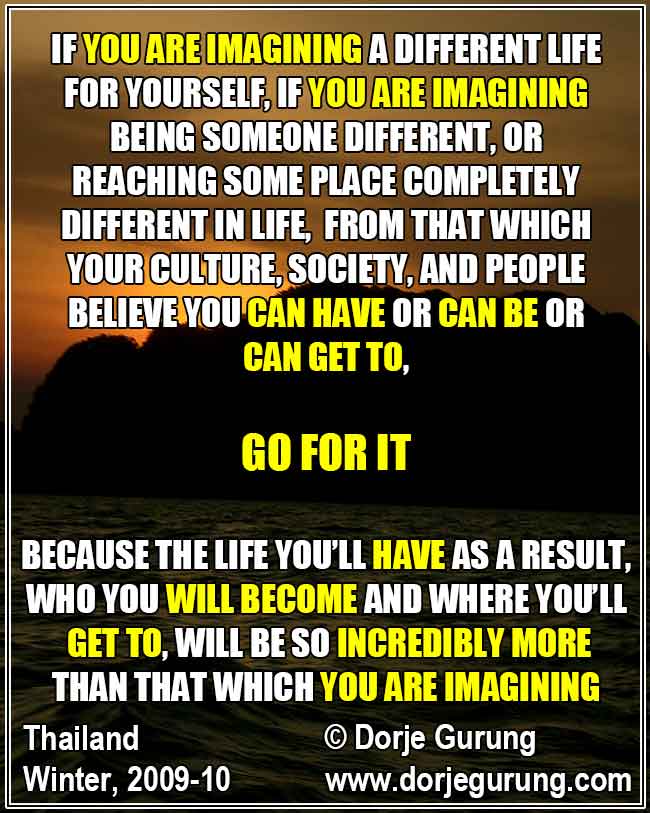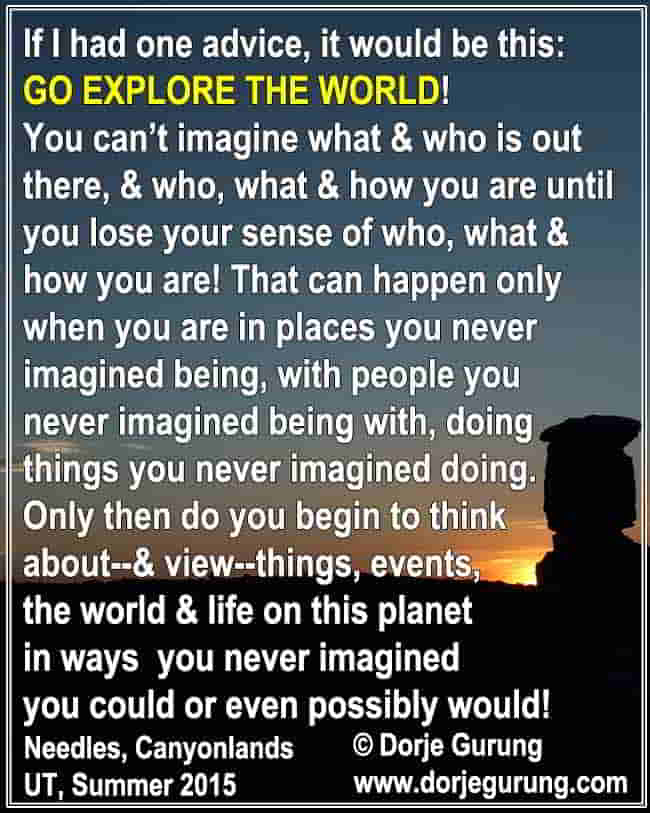That I think and behave differently from most Nepalis is not an accident: I have had some incredible opportunities that a vast majority of them haven’t!
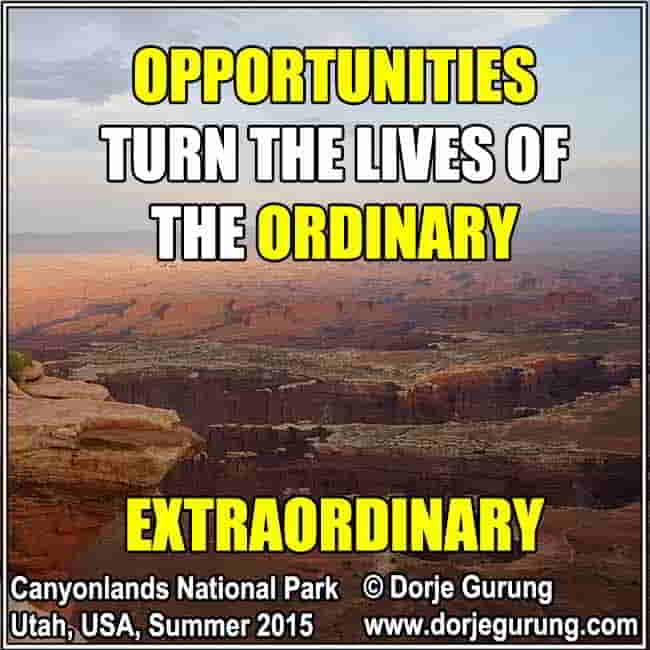
It all started with a teacher in Pokhara who, recognizing my potential, told my dad to put me in a good school in Kathmandu. That led to my first lucky break: the privilege of attending St. Xavier’s Godavari School. At the time it was probably the premier primary school in the country.
In spite of the background I came from — poor and uneducated family and a people labeled as “backward” by Nepali society at large — there I was a student among youngsters some of whom were from very wealthy and powerful families with a lot of “source-force” (wealth and connection). I was school mates with children of high-ranking army personnel, high-ranking police officers, lawyers, judges, wealthy businessmen etc. Two of my classmates were even nephews of the King himself!
I continued on to St. Xavier’s Jawalakhel School for my secondary education. At St. Xavier’s, as the two were collectively known, I had some incredibly inspirational North-American teachers. My imagination fired, I strove to “escape” from Nepal, to go abroad for further studies.
I had another lucky break not long after I completed my schooling at St. Xavier’s: a full scholarship offer from the United World College of the Adriatic (UWCAD) in 1988. Two years at UWCAD was followed by yet another incredible lucky break: admission to Grinnell College on pretty much a full scholarship as well.
Those educational opportunities, in turn, led to some incredible life opportunities — to travel, to learn about the world and the people, and to work with people from all over etc.
To shed some light on the kind of life I had between 1988 and 2013, the 25 years I mostly lived abroad, here are some numbers:
Those experiences contributed much to my becoming the person I am, to my believing in the things I do, and to my doing the things I do today!
In other words, those experiences, naturally, shaped my views of the world and life, and molded me in incredible ways, in ways studying, living, and working in Nepal most likely would NOT have.
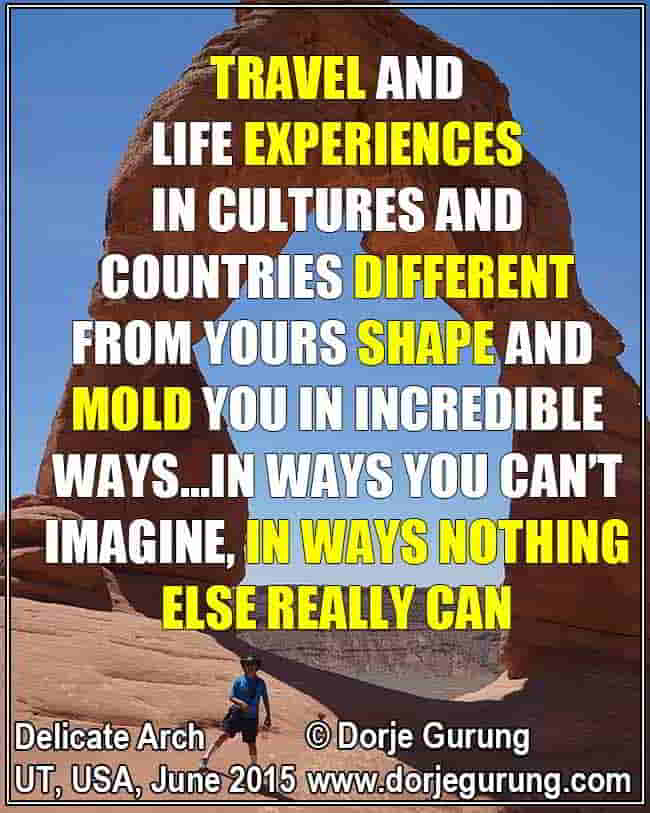
Not surprisingly, I think differently from most Nepalis, some of which I spelled out in a series of Facebook posts which I reproduce below with comments where necessary.
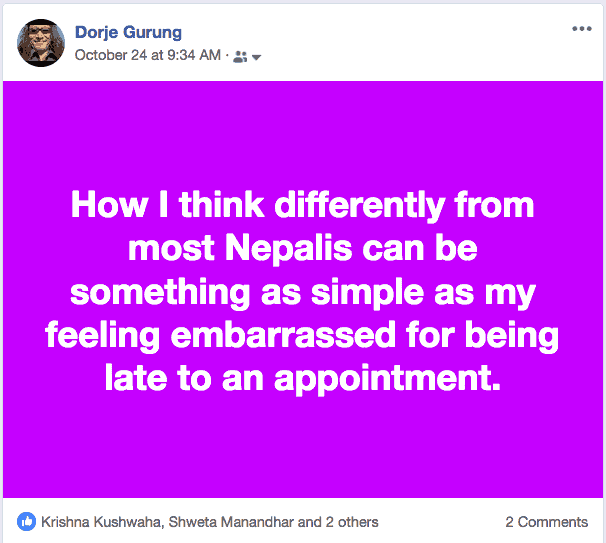
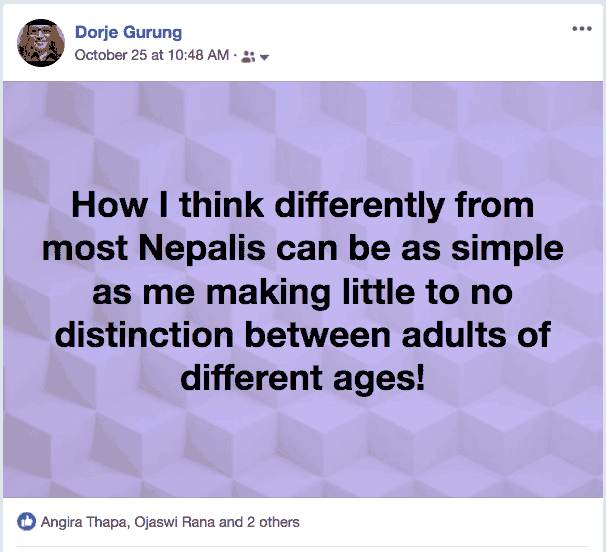
There is a simple reason for why I make little to no distinctions between people of different ages.
During my earlier 15+ years of international teaching career, people I engaged with on a daily basis represented a wide age range. In the classroom I worked with teenagers who I showed great respect to, and who I treated pretty much as I did adults. As a matter of fact, I was a student at one school and taught at three where teachers and students went by their first names. In other words, even the students called their teachers by their first name, forget sir!
From when I was a young adult starting off my career in the nineties all the way to when I was a middle-aged man towards the end of that career, outside the classroom, I worked alongside and socialized with colleagues from young adult men and women all the way to those of almost retirement age. Outside of school, I moved within an expat bubble which was no different. At no time did it ever occur to me to make any distinction between people of different ages (nor between people of different gender). Nor have I, nor do I, even now in Nepal!
What also helped was the language of communication: English. It is considerably more egalitarian, so to speak, than any of the three languages I speak as well as many others.
In contrast, among other things, age determines how adults in Nepal treat and engage with one another. Additionally, Nepalis generally self-segregate themselves by age groups (as well as by gender) at social events and other functions. In other words, at such functions, adults of vastly different ages consciously and deliberately avoid each others.
To state the obvious of course that is NOT unique to Nepal!
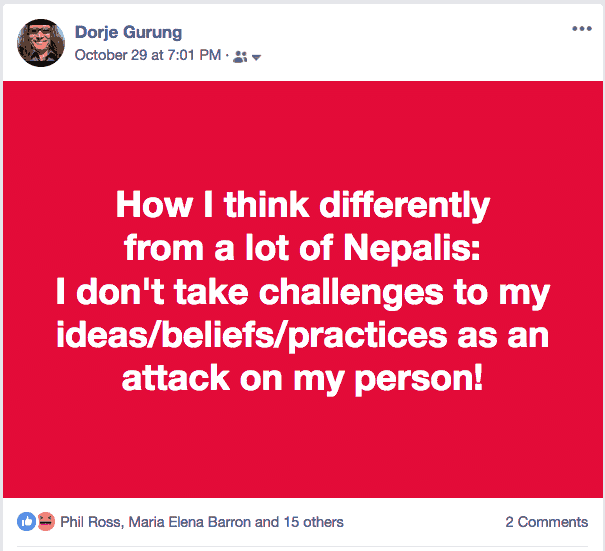
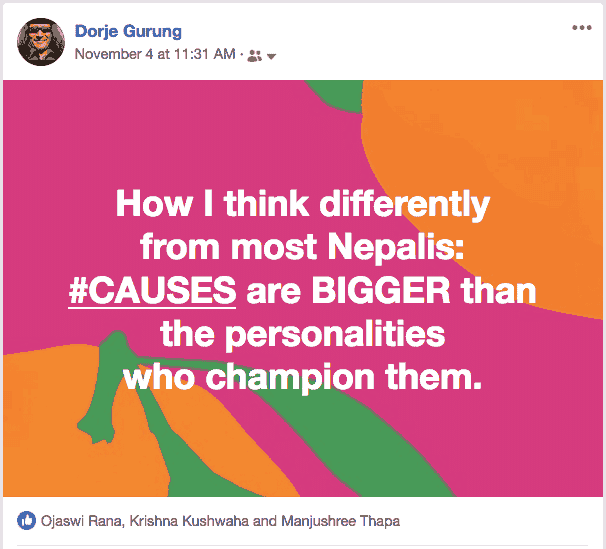
Whether they are championing or supporting causes, Nepalis elevate personalities above the causes. Consequently, the causes lose out.
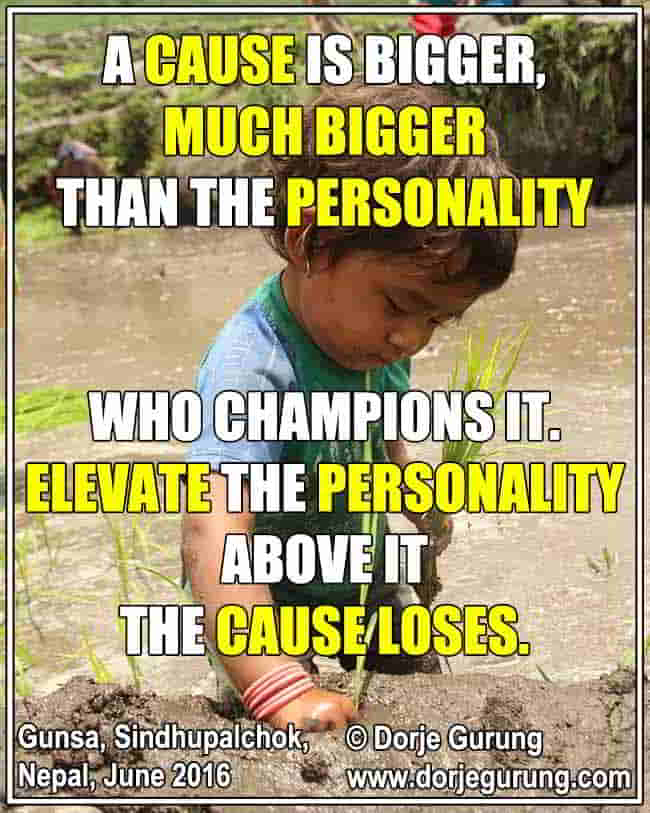
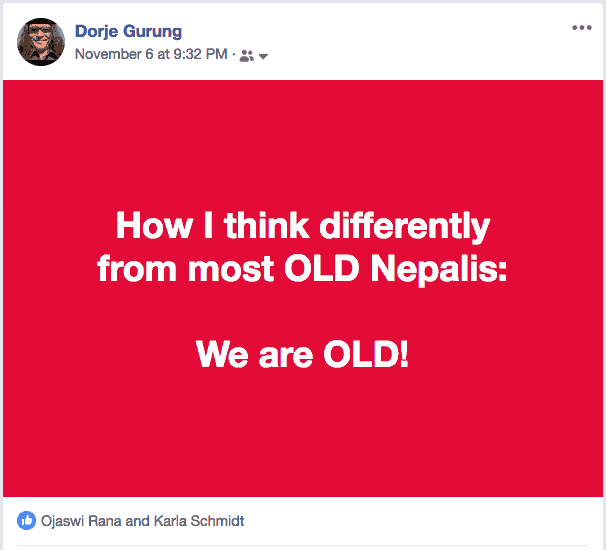
By that I mean both in the sense of us being behind the current time and in chronological age as well. Obviously, the current worlds the young children as well as young adults in Nepal live in are very distinct from that of ours. Of course that has ALWAYS been the case between generations simply because of time. The internet, for instance, has always been around as far as the current young adults are concerned. While most of them don’t have any memories of it not being around and can’t imagine what life must have been like without it, we do.
But with the current time, the other more important reason for the vast difference in our and their worlds is that, in the last twenty-five years, the world has changed at a much higher rate than before, especially in, and because of, information technology. Old folks like us are not keeping pace with — and track of — them.
However, ask the middle-aged and older Nepali men about who, how, what, and why the young should be, most will have definite ideas and will lecture you as if they know it all — about both the young and everything else!
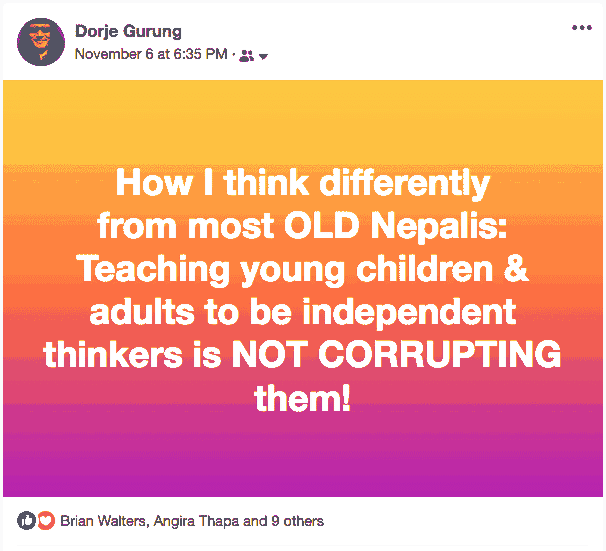
Many are so close-minded and traditionalists, they de-value critical and independent thinking.
I have met many such men, many of them from my own ethnic Tibetan community of Tangbetanis! They tell me my extensive education and international experience was a waste. They argue that my education and experience “should have reaffirmed and reinforced the importance and value of our beliefs, practices, and traditions.” “But,” they add, “you don’t agree with what a lot of us believe and do.” “Instead,” they continue, “you have crazy opinions and ideas that no one understands”!
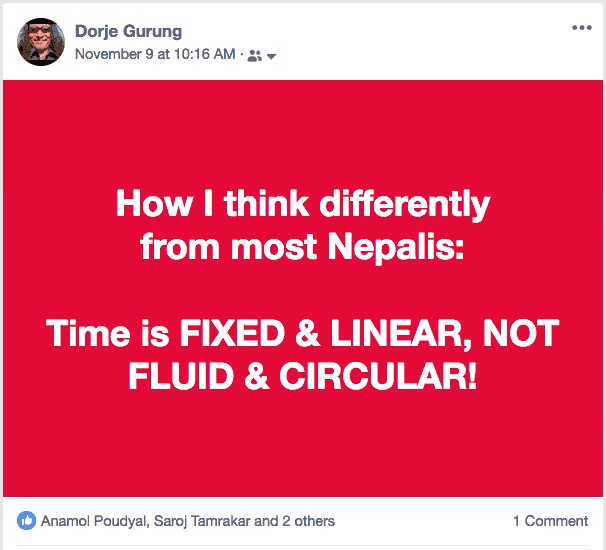
If interested in a blog post discussing the concept of “Nepali time” and how I suffer because of that, read Kissing Ass Could Mean Sitting on Your Asses. Of course there are many more differences than those covered in the blog post.
Being outspoken about many of the issues we face in the country is yet another one of the results of my extensive education and experience around the world.
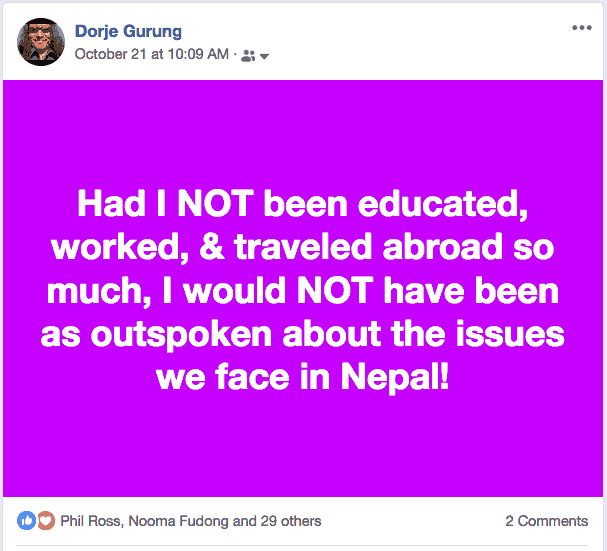
My outspokenness also stems from the grave injustice I suffered in Doha, Qatar: incarceration for allegedly insulting Islam.
Of course being so you pay a price!
That is however to be expected. We are after all a country where, firstly, the quality of education is so abysmally poor and, secondly, the level of education of that poor quality education is so low that superstition and faith still determine the beliefs of most. Those beliefs in turn dictate their practices — actions and behaviors. Intellectualism, for example, is frowned upon or outright rejected; conformity is prized and expected, and in some circumstances even demanded. Besides, most in the country, especially the privileged, don’t like being — and therefore don’t expect to be — challenged. To top it all, a number of issues our society suffers from — and struggles with — are social stigmas, and therefore talking about or discussing them is taboo.
Consequently, I have become very disillusioned and feel completely out-of-place in the country.
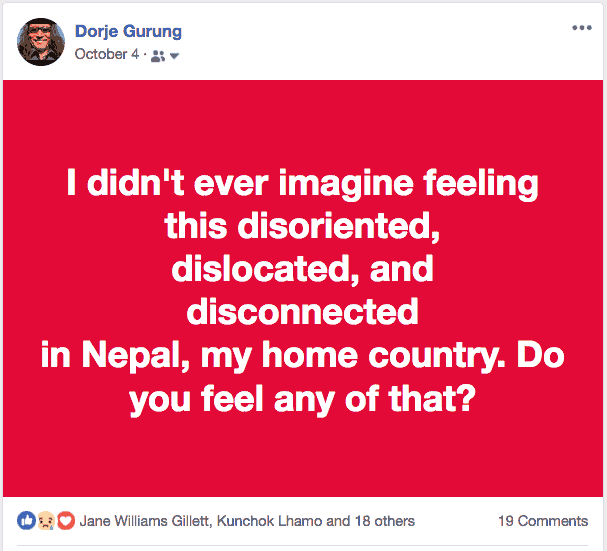
But then of course, my life abroad has shaped me in ways Nepalis of my age living and working in Nepal mostly likely have not been.
As a matter of fact, one of the many reasons for wanting to “escape” from the country, to begin with, had been to break free from the shackles of Nepali culture, society, and people, AND to become more than that which they said I could be.
Sure enough, one of the discoveries I made during my life abroad was the following:
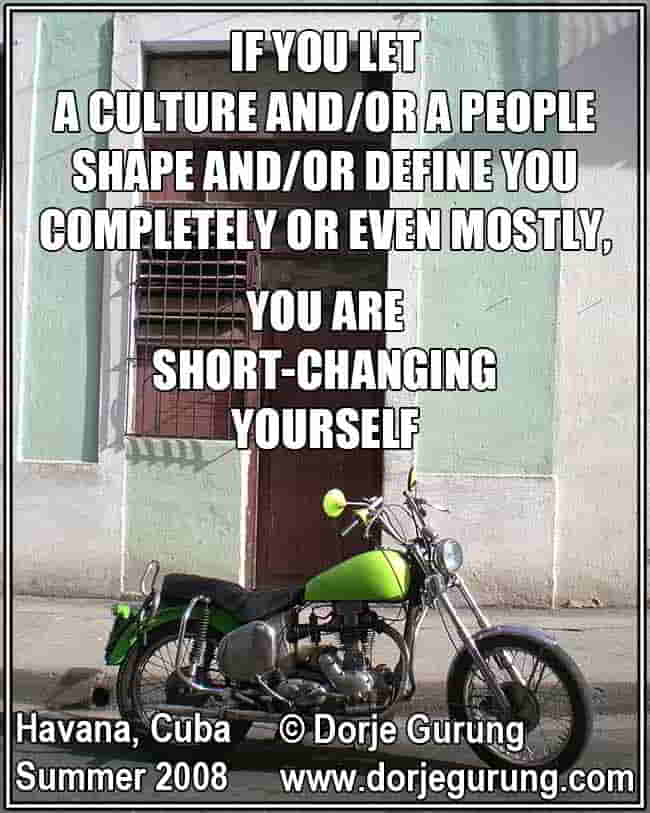
I have also made many MANY other discoveries about people, life, and the world that I probably wouldn’t have had I not left Nepal.
Here are some of the important ones.
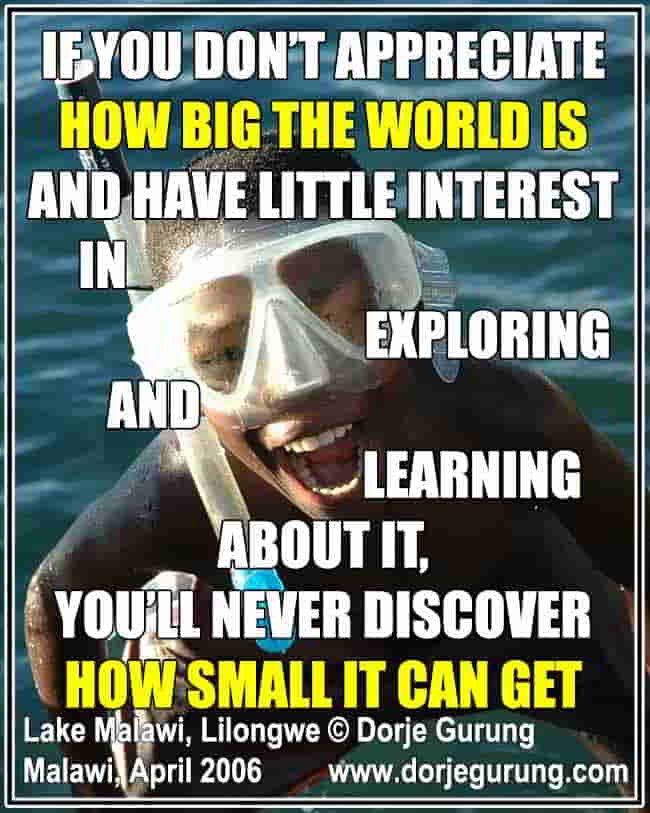
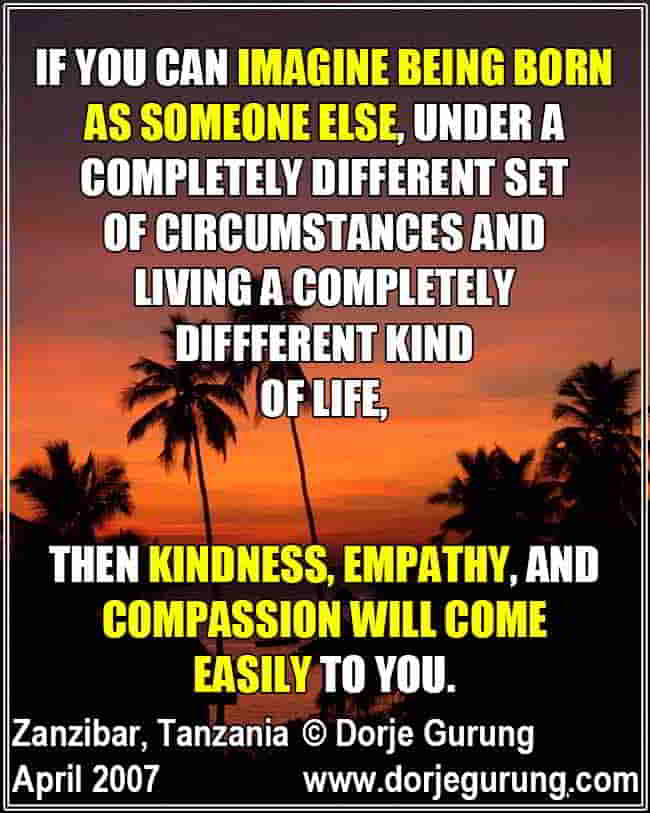
And finally, the most important self-discovery and an advice:
As a young student in Nepal, when I had dreamt of going to the US for further studies and going to the United World College to “learn about the world and people”, I NEVER imagined becoming who I have become and getting to where I have gotten to in life, both literally and figuratively. I have actually wondered if I have gone a little too far…but that, on its own, could be a blog post and some!
In case you are envious of all that and want to also follow in my footsteps 😀 😀 , here’s my advice: go explore the world!
I have to warn you though! 😀 😀 😀 There is also a “drawback to” or “problem” associated with that! 😉 😉 😉 And that’s this:
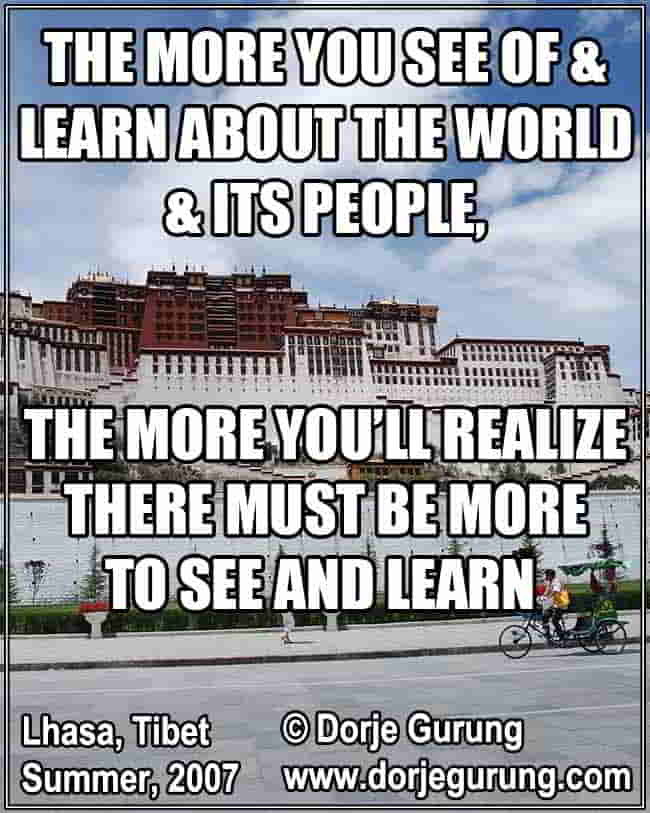
What do you think?
March 11, 2021 Update: The Instagram-post embeds as well as some of the older memes were replaced by ones much more appropriate and suited for mobile devices.

